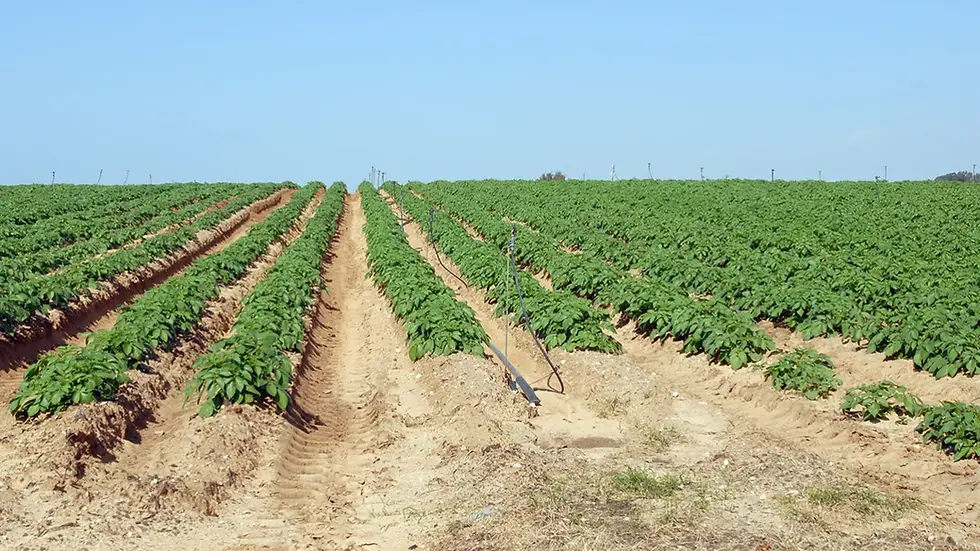Turning toward Trust
- Rabbi Amy Eilberg
- Mar 12, 2021
- 4 min read

One of my favorite passages in the Torah appears at the very end of the Book of Exodus. After an extended set of descriptions of the construction of the desert mishkan (sanctuary), we find the following profound passage:
“When Moses had finished the work, the cloud covered the Tent of Meeting, and the Presence of God filled the Tabernacle. Moses could not enter the Tent of Meeting, because the cloud had settled upon it and the Presence of God filled the Tabernacle. When the cloud lifted from the Tabernacle, the Israelites would set out on their various journeys; but if the cloud did not lift, they would not set out until it did. For over the Tabernacle a cloud of God rested by day, and fire would appear in it by night, in the view of all the house of Israel throughout their journeys.” (Exodus 40:33-38)
At times, the dense cloud - the manifestation of the Divine Presence - hung in the tabernacle for an extended period of time. Then the Israelites knew that they must wait and watch for further instructions. But when the cloud lifted, the Israelites knew that it was time to set off again on their journey, directed by the Divine cloud by day and fire by night.
I am captivated by the Torah’s description that the Israelites had a cosmic navigational system. If they wondered whether it was time to break camp and move along on their journey, they only needed to watch the sky. If the dense cloud had lifted, it was time to move on. If the cloud still engulfed the mishkan, they knew they needed to wait.
I love envisioning a directional system from God to guide my own life. Surely, I know times when the cloud is impenetrable: when heart-wrenching decisions must be made, or when painful emotions block clear vision, when I am caught in thoughts about the past or worries about the future. What would it be like to know that I could simply look to God to show me the way?
I do not believe in a God who literally sends me directions about which street will offer me the best parking spot, or guides me on a host of other trivial, concrete decisions I cannot believe in this level of Divine intervention.
Still, turning to God for direction, guidance and orientation in our lives is what we do when we cultivate the middah of bitachon, or trust.
Here is one particularly beautiful Biblical expression of the nature of trust:
“Cursed is the one who trusts only in humans and makes the flesh one’s source of strength and turns away from God. He will be like a tree in the desert and will not see when good comes. She will inhabit the parched places of the desert, a salty, uninhabited land.
Blessed are those who trust in God, and whose hope is in God. For they will be like trees planted by the waters, that spread out their roots by the river, and will not see when the heat comes, but their leaves will be green; and will not be anxious in the year of drought, nor will they cease from yielding fruit.” (Jeremiah 17:5-8)
Of course, a time-honored question immediately arises. Is it true that people who trust in God will literally be spared the painful experiences of life? Will their lives be filled with only positive circumstances? Will they be spared illness, loss and death?
Illness, loss and death are part of what it is to be a human being, and so are frequent smaller challenges. None of us is spared the reality of mortality. Trust and faith do not mean that nothing bad will ever happen to us.
So I understand Jeremiah’s description as lyrical rather than literal. The person who trusts in God, in the orderly unfolding of the Universe, in Divine power both within us and around us, is grounded and spiritually protected from some of the suffering associated with life’s difficulties. According to Jeremiah’s poetic imagery, the faithful person is like a tree rooted deep in the earth, nurtured by the beauty and abundance of nature, sure that it will be given what it needs to thrive. This brings steadiness, clarity and serenity even to times when life is painful.
To invoke a different metaphor, “one who trusts in God is surrounded by lovingkindness.” (Psalms 32:10) In a state of bitachon, one is enveloped in a blanket of love, enfolded in the caring and trustworthy quality of life.
With trust that God is an ever-present loving presence and also manifest within us, clouds of anxiety lift and decision-making becomes simpler. It becomes clear which direction we need to take and when.
We do not usually get our life direction from meteorological conditions (although I have seen those breath-taking and mysterious moments when the sun pushes through the clouds at exactly the right moment). But we can practice turning our lives over to the trust that we will be cared for, that life is good, and that God is with us. This is bitachon.
This column was first published as part of the "Torah from a Mussar Perspective" of The Mussar Institute.




Comments